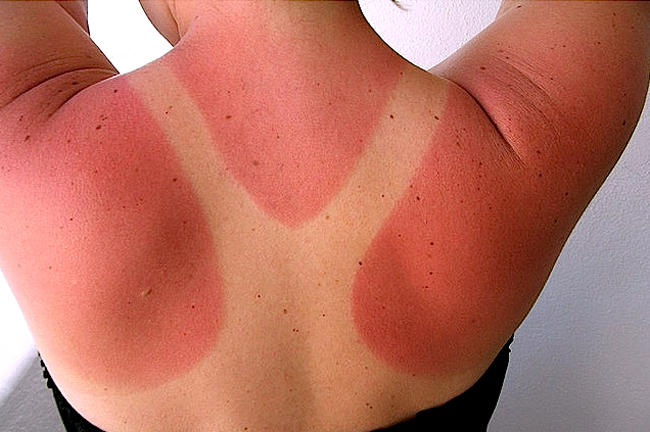Sunburn is skin damage caused by ultraviolet (UV) rays.
Normally, the skin is protected from the sun by a substance in the skin called melanin. Melanin is a pigment (colouring) that causes your skin to appear light or dark coloured. If your skin is exposed to excessive ultraviolet radiation (UVR) from the sun or a tanning bed, it becomes burned.
The amount of UVR required to burn your skin depends upon:
The amount of melanin in your skin. In general, people with fair skin and light-colored hair have less melanin and are at a higher risk of sunburn compared with people with darker-colored skin. Some people can develop sunburn after less than 15 minutes of sun exposure.
Where you are. People in regions that are closest to the equator and high altitudes (eg, mountainous areas) are at a higher risk for developing sunburn. Take extra precautions when you are exposed to a breeze (eg, sailing) because this masks the heat of the sun, which is a good guide to the intensity of UVR. Also remember that snow reflects UVR.
Certain medications make the skin more sensitive to sunburn. This includes nonsteroidal anti-inflammatory drugs (eg, ibuprofen), quinolone and tetracycline antibiotics (eg, Ciprofloxacin, tetracycline), diuretics such as furosemide (Lasix) and hydrochlorothiazide (HCTZ), psoralens (methoxsalen/Oxsoralen), and phenothiazines (eg, Compazine). Other drugs include amiodarone and antifungals, including voriconazole, itraconazole, and fluconazole. If you take one or more of these medications, you should avoid the sun and use protective measures (eg, sunscreen) to avoid sunburn.
Sunburn is associated with premature skin aging (eg, wrinkling of the skin) as well as skin cancer, including malignant melanoma, a very serious form of skin cancer. Sun exposure and ultraviolet radiation damage can also increase the risk of developing cataracts (when the lens in the eye becomes cloudy).


